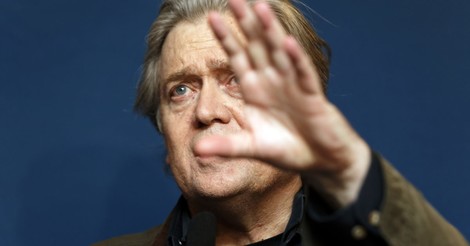Your podcast discovery platform
Curious minds select the most fascinating podcasts from around the world. Discover hand-piqd audio recommendations on your favorite topics.

piqer for: Globalization and politics Global finds
Freelance journalist currently based in Berlin, chronicling the effects of populism on elections in Europe. Former Washington-based political reporter for CBS News, Politico and National Journal.
For Steve Bannon, Leading A Far-Right 'Movement' In Europe Might Not Be So Easy
The news earlier this week that ex-Trump campaign chief Steve Bannon is launching a European foundation aimed at uniting and strengthening far-right populist parties caused quite the stir. Bannon, now that he's persona non grata in the White House, has turned his attention to Europe in recent months and has clearly worked to position himself as a standard-bearer for populist views and parties on this side of the Atlantic.
But as this Politico piece notes, ingratiating himself with these far-right parties is easier said than done. There's a decent amount of reticence toward the idea of a non-European leading such a movement, for one. Leaders in some of these parties also hesitate at Bannon's reputation (he's spending time in Europe, the argument goes, only because he's not wanted by political types back in the U.S.). It's also a bit difficult to set one's self up as "the George Soros of the far-right" if one doesn't have pockets nearly as deep as Soros's.
With European elections looming next May, Bannon's will hardly be the only movement to attempt to unite disparate far-right parties under one banner. But for all the attention Bannon's announcement got, it's worth treating his ultimate impact on the European political scene with a skeptical eye.
